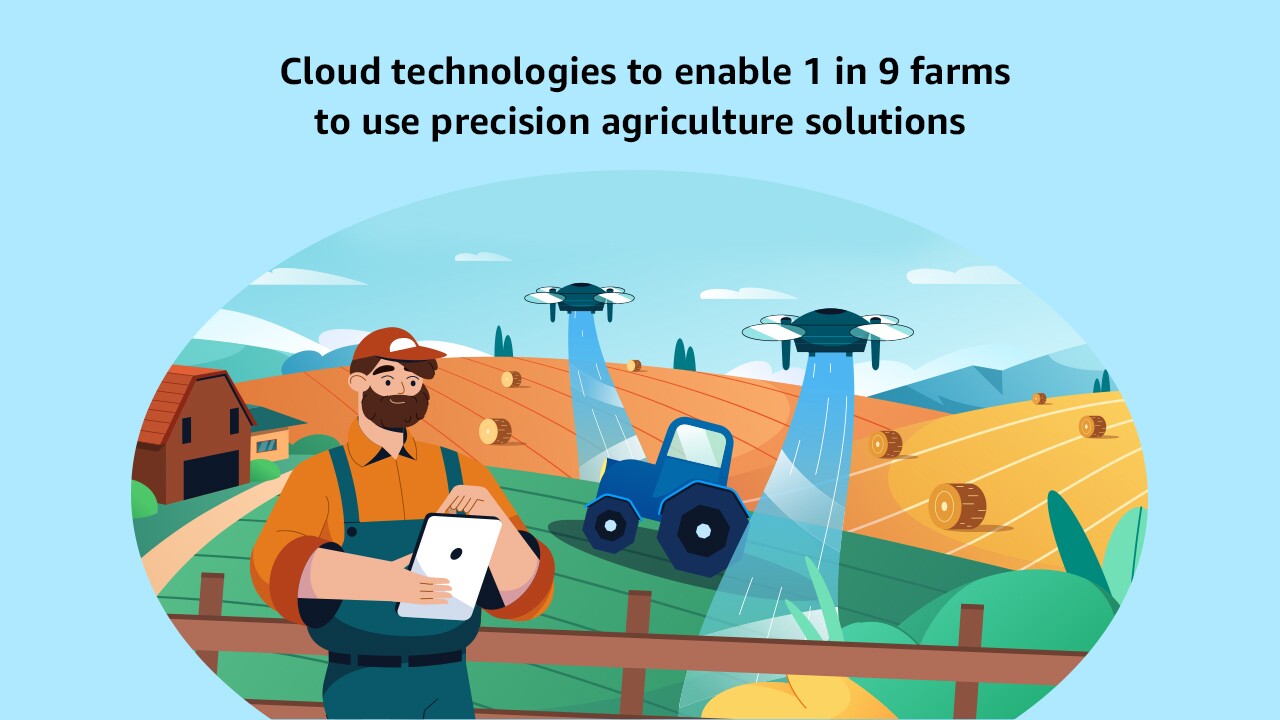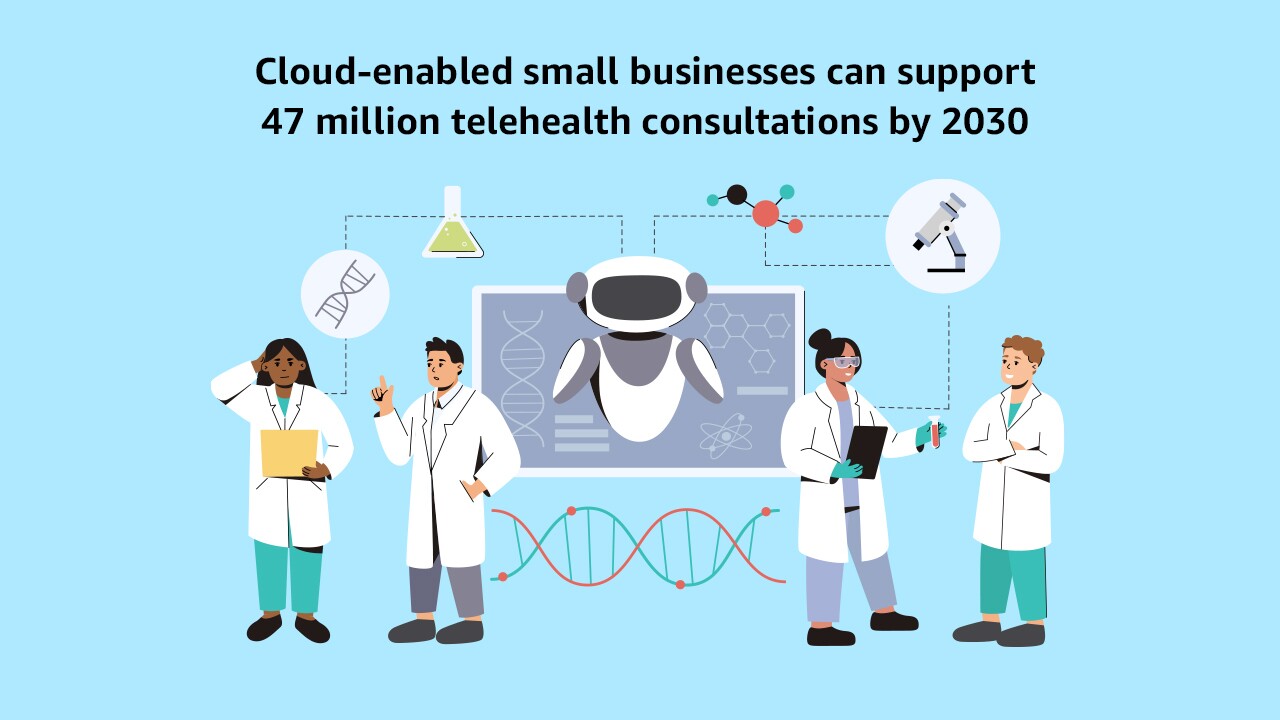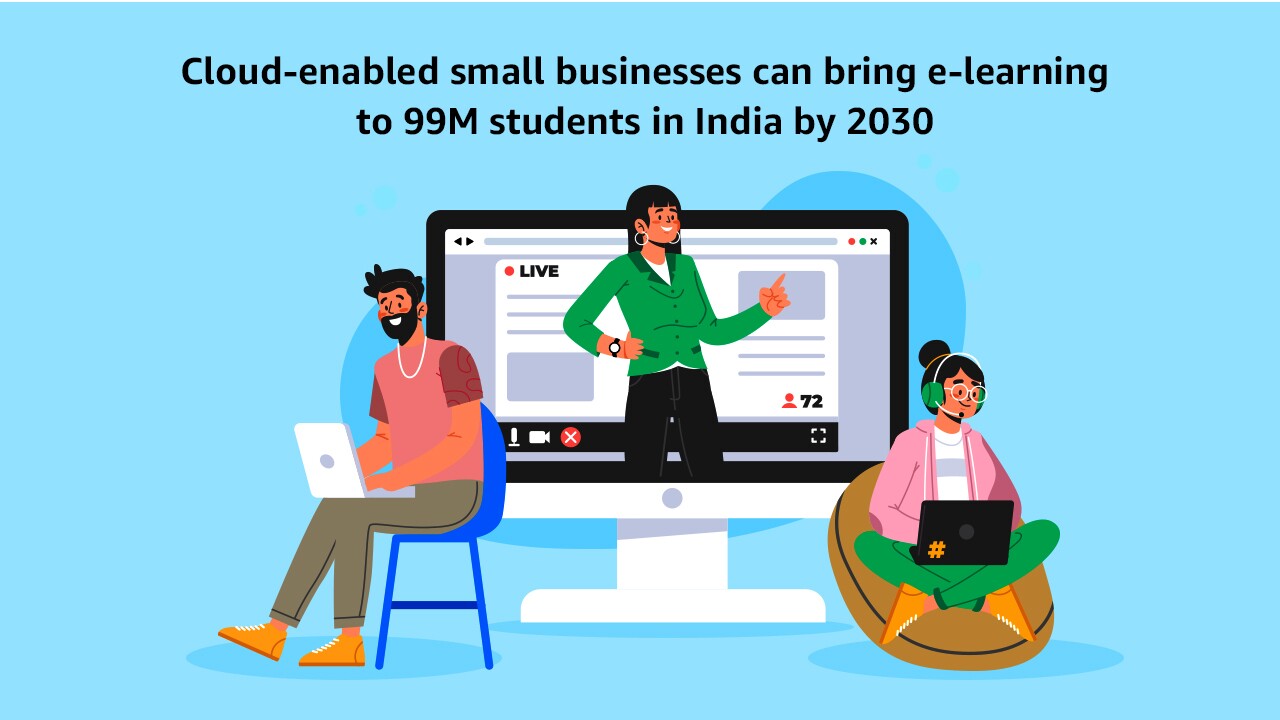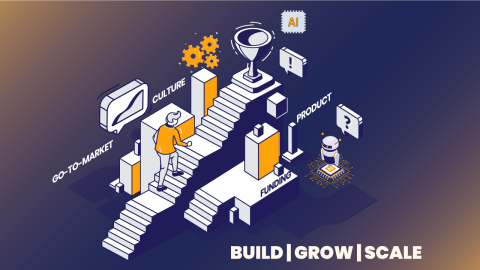Small businesses that embrace cloud-enabled technologies in India’s education, healthcare and agriculture sectors could unlock up to ₹1.6 trillion in annual productivity gains by 2030—a 152% increase on current levels.
Also, 45.9 million jobs are expected to be supported across these sectors by 2030, according to the “Realizing a Cloud-enabled Economy: How Cloud Drives Economic and Societal Impact Through Small Businesses” report, which covers 12 countries, including India.
The report uses the Organisation for Economic Cooperation and Development’s (OECD) definition of cloud adoption levels to forecast a cloud enabled-economy in 2030 where 90% of all businesses adopt at least a basic level of cloud technology.
The report reveals that 28% of businesses in India are using at least basic cloud services, such as web-based email and storage. This leaves a lot of room for growth, as cloud services can offer multiple benefits such as cost saving, scalability, and agility.
Accelerating growth through AI
“Cloud enables small businesses to access the same set of scalable and secure technologies as large global enterprises, and also helps them to focus on solving business problems at a fast pace and in a cost-efficient way. By adopting advanced cloud-enabled technologies like generative AI, small businesses can accelerate their growth and digital transformation. AWS is working alongside governments, educators, and the industry to help small businesses in India realize economic and social benefits while creating a better future for all,” said Deepti Dutt, Leader – Verticals, Public Sector, AWS India Private Limited.
“While there are significant benefits that are unlocked by small businesses adopting at least a basic level of cloud technology, there is still a huge opportunity for them to further advance their cloud adoption as this will accelerate their ability to address some of the biggest challenges in society,” said Aaron Hill, Managing Director of Economic Insights, Accenture Strategy and Consulting.
Impact of cloud-enabled small businesses
From facilitating remote medical consultations and improving access to education to enhancing precision agriculture, small businesses can make considerable contributions to the economy and society by moving to cloud, the report shows. All of these contribute to achieving the Sustainable Development Goals (SDGs) established by the United Nations.

Addressing food shortage with precision farming
In the agricultural sector, cloud-enabled small businesses are playing a vital role in addressing food shortage by implementing data-driven practices powered by technologies such as AI. According to the report, small businesses in India can help unlock ₹1.1 trillion in annual productivity benefits in agriculture by 2030. Additionally, the report estimates that one in nine farmers in India will be using precision agriculture solutions by 2030, representing a 300% increase compared to the current usage rate.
Areete is a technology company that develops solutions to help dairy farmers overcome challenges such as low milk yield, missed reproductive cycles, and high medical expenses. Using AWS IoT and database technologies, Areete has developed ‘Ayushman Cowfit’, a serverless cloud-native solution. This solution provides farmers with regular multilingual alerts and notifications about their cattle health, which helps to improve dairy yields by more than 10%.

Healthcare for underserved communities
Cloud-enabled small businesses in the healthcare sector can help with addressing the challenge of limited access to healthcare in underserved communities. The report estimates that these cloud-enabled businesses could help unlock ₹199.5 billion in annual productivity benefits and support 47 million telehealth consultations in India by 2030.

Education for all
Small businesses which are cloud-enabled are helping to make education more accessible and inclusive through digital platforms. The report estimates that these businesses could help unlock ₹291.6 billion in annual productivity benefits in education, and provide e-learning solutions to 99 million students in India by 2030. It also highlights that 248 million adults are expected to access education resources via cloud-enabled small businesses.
Rocket Learning, an edtech non-profit, is empowering underserved children across India with quality early childhood education. It leverages AWS AI and ML technologies to reach over 1.75 million children in nine Indian states. AWS has enabled Rocket Learning to reach out to rural communities across India, helping children from low-income groups develop pre-literacy and pre-numeracy skills.
Business transformation with generative AI
AWS helps small businesses to seize opportunities in the digital economy and transform their business models using cloud technologies like generative AI. AWS offers programs tailored to the diverse needs of small businesses that are at different stages of their digitization journey. Over the past 10 years, early-stage startups globally have used AWS Activate program to grow and scale their business. Since 2019, the program has provided more than $2 billion in AWS credits globally to help startups manage costs, get technical expertise, and access training and business mentorship. For small businesses looking to kickstart their cloud journey, the AWS Lift program provides small businesses with a starter pack of cloud credits of up to $83,500 over 12 months, resources, and support from AWS Partners, and to help them start digitising in the cloud.
The “Realizing a Cloud-enabled Economy: How Cloud Drives Economic and Societal Impact Through Small Businesses” report uses market sizing, responses from quantitative surveys, and a combination of publicly available datasets from the OECD, the World Bank, the Conference Board Total Economy Database.











